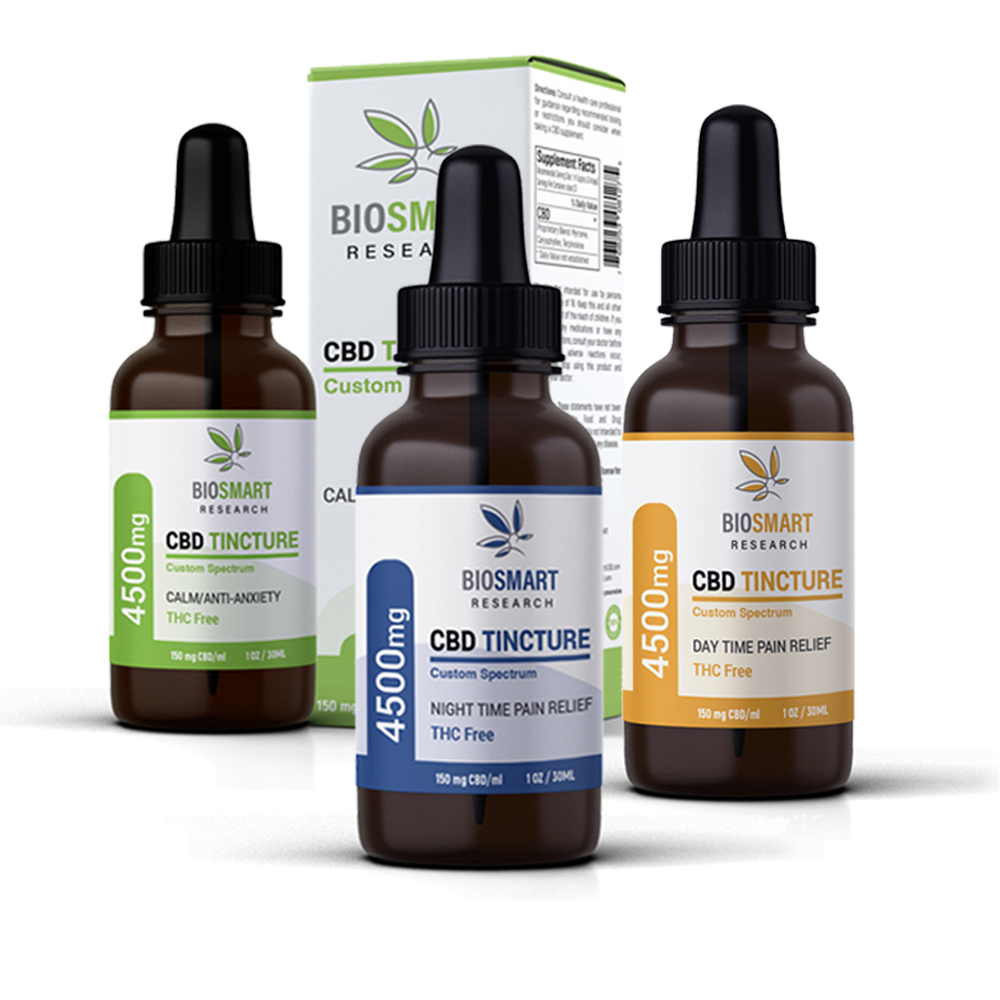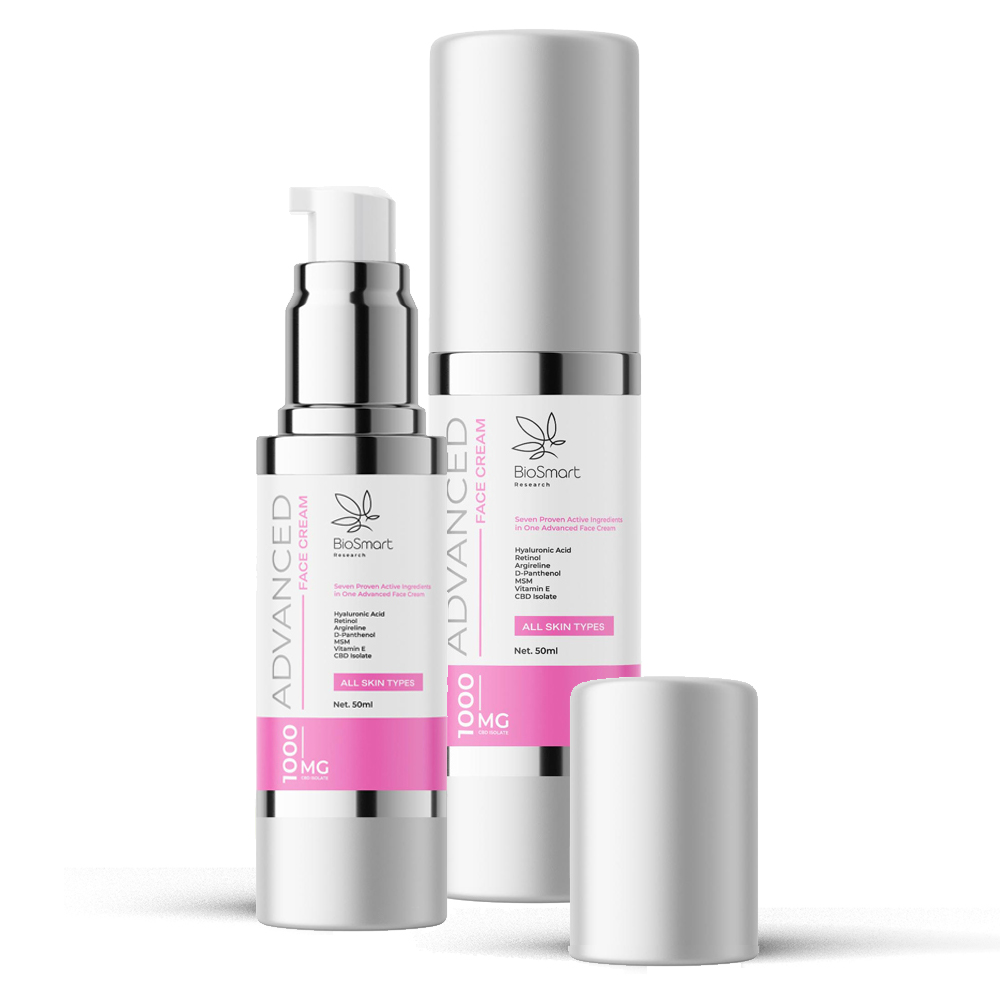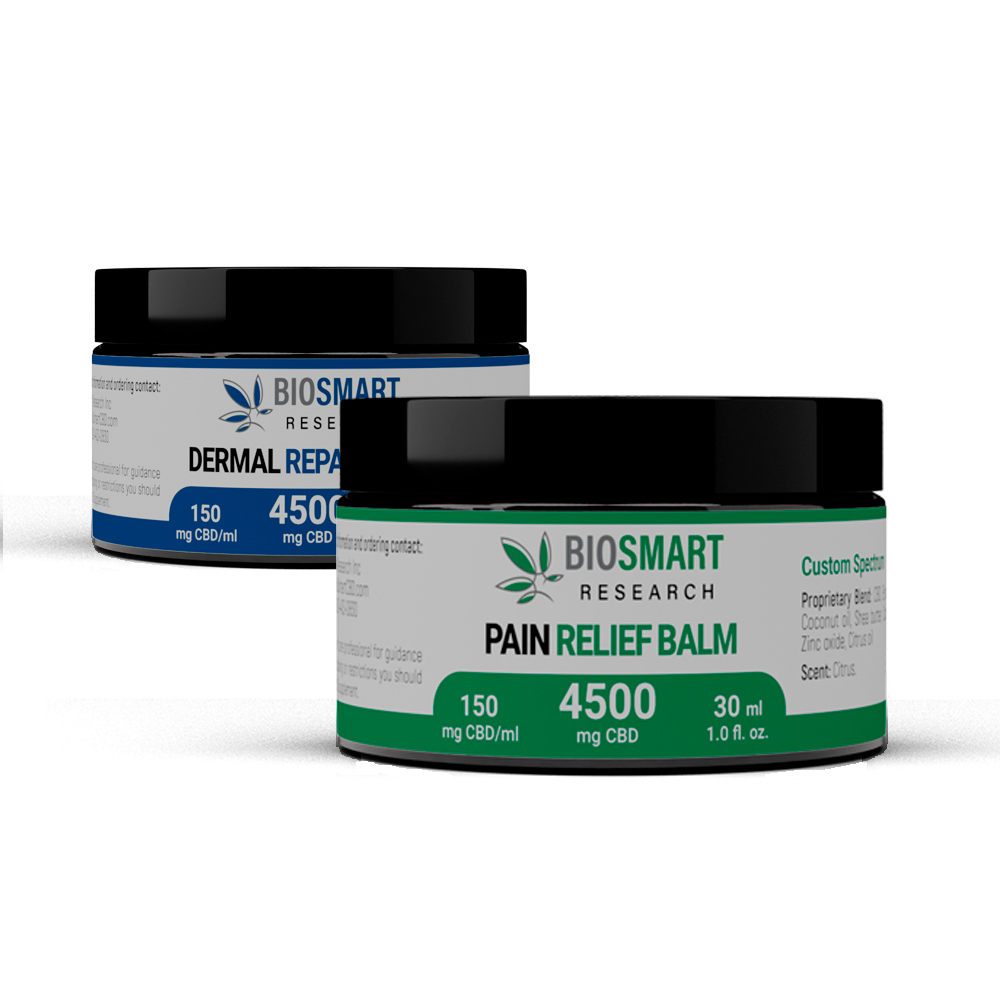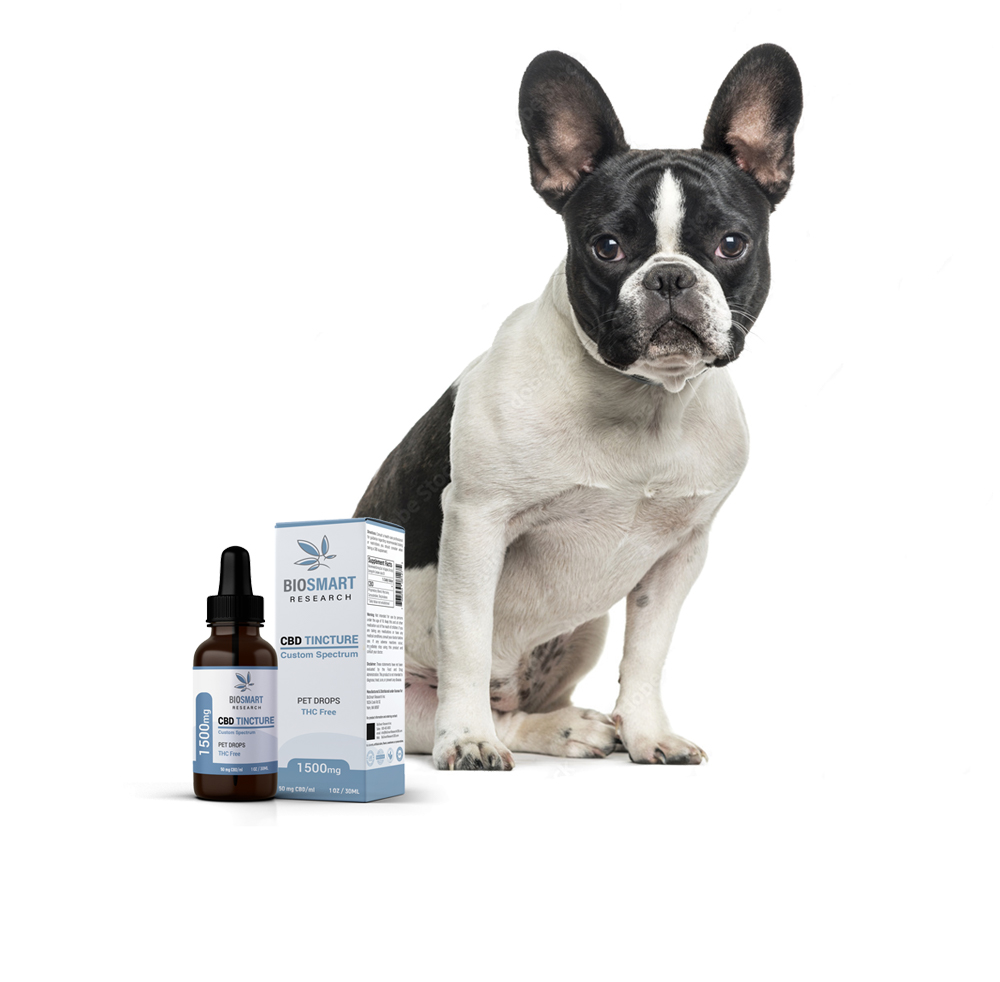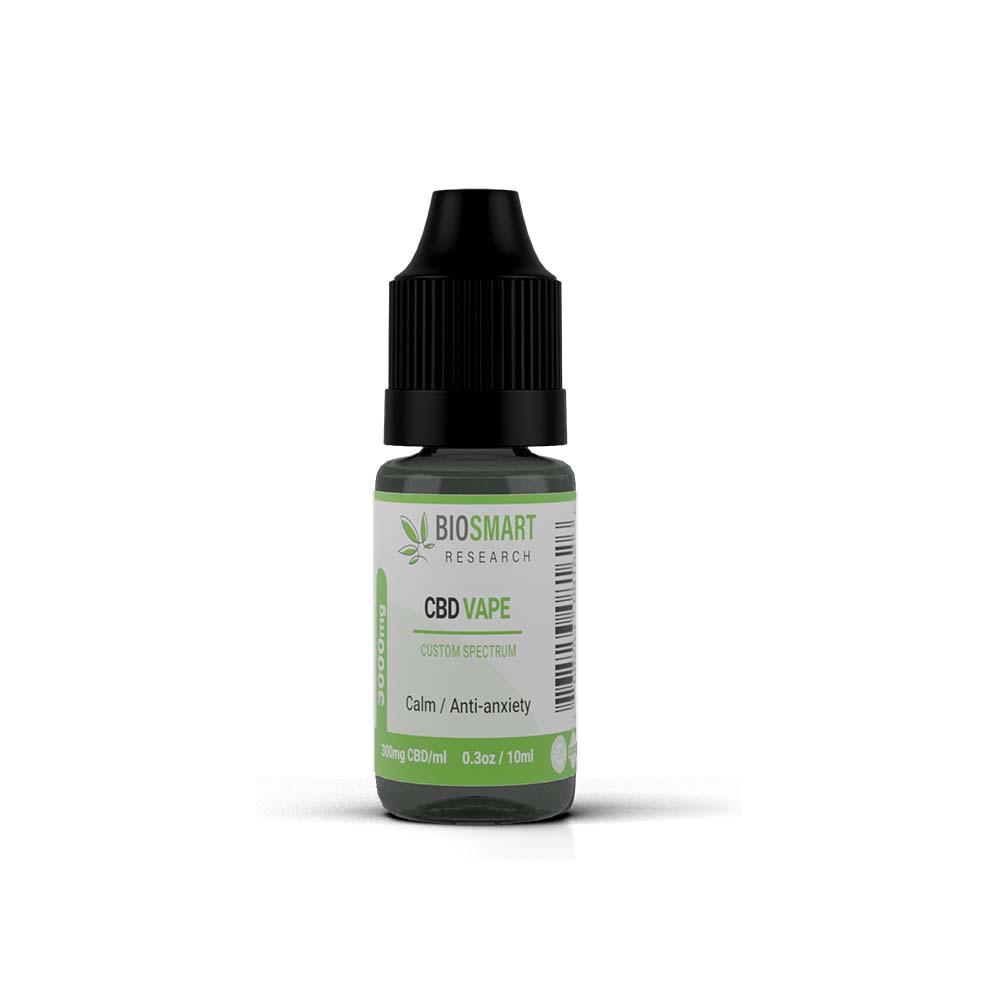Introduction to CBD
Our guide to everything CBD
New to CBD? Don’t worry! Every one of us was once in your shoes. We know that CBD can be a little confusing at first. There are many, many ways to take CBD and even a whole new set of nomenclature/slang to learn that has grown up around the industry. To help out, we’ve put together some useful information all in one place to get you started learning about CBD. After all, we’re in the business of easing your stress, not adding to it!

What is CBD?
CBD, or Cannabidiol, is a naturally occurring chemical crated by the Cannabis plant. Currently over 130 such compounds known collectively as cannabinoids have been identified, making the Cannabis plant a virtual pharmacological treasure trove.
In the past few years CBD has become one of the most talked-about topics in the natural health industry because it seems to support a sense of well-being in human beings. Studies have found that CBD helps to maintain different psychological processes in the body by interacting with various receptors in a part of the nervous and immune system known as the Endocannabinoid System (ECS).
While research is ongoing, studies show the ECS is involved in many key processes in the body. These jobs include regulating your anti-inflammatory response, immune system, appetite, mood, anxiety levels, sleep schedule, reproductive system and more. Basically, the ECS works to keep your body in homeostasis or balance in response to stress from illness, injury, or just the daily grind. See more on the ECS below.
CBD
(cannabidiol)

Will CBD get me high?
Unlike tetrahydrocannabinol (THC), a cannabinoid found primarily in marijuana — CBD (cannabidiol) does not produce any intoxicating or “high” effects, meaning users can experience its wellness benefits without disconcerting feelings of lethargy or dysphoria.
Our CBD Isolate products contain 0% THC and therefore produce no high.
Will CBD show up in a drug test?
Most drug tests look for THC, the psychoactive cannabinoid found in marijuana, and do not test for CBD. If drug testing is a concern for you, be sure to only buy products made with CBD isolate and check the label to confirm there is no THC.
Full-spectrum CBD products, which can contain up to 0.3% THC, should be avoided if you are required to take a THC drug test for work, medical or personal reasons.
How does CDB work?
The Endocannabinoid System
Now that you understand a little bit about what CBD is, you may want to learn a bit more about why so many people are using CBD for their health. The potential health and wellness benefits of CBD are due to the way CBD interacts with your endocannabinoid system. Your endocannabinoid system is the network of receptors and messengers that regulate many vital processes in your body.
The messengers manufactured by your body are made as needed and broken down quickly by enzymes. When your body cannot produce enough messengers (neurotransmitters called Endocannabinoids) on its own the communication system can fail. Ideally, your endocannabinoid system would remain in balance. Unfortunately, under the assault of stress, illness or injury, your body may not produce enough endocannabinoids to fulfill communication requirements. The system becomes unbalanced, and communication deteriorates.
Keeping the endocannabinoid system balanced is so crucial to your health and well-being that many researchers today believe endocannabinoid deficiencies are to blame for many common health concerns. CBD works by mimicking the messengers and influencing the receptors of the endocannabinoid system. By supporting the functions of this regulatory system, CBD has the potential to provide numerous health and wellness benefits.
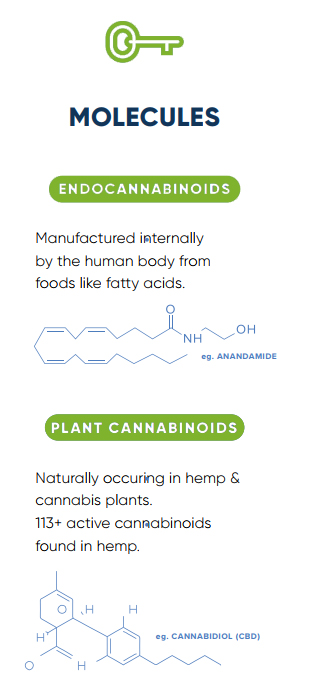
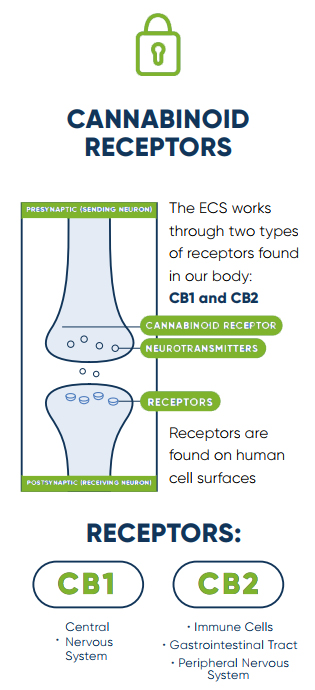
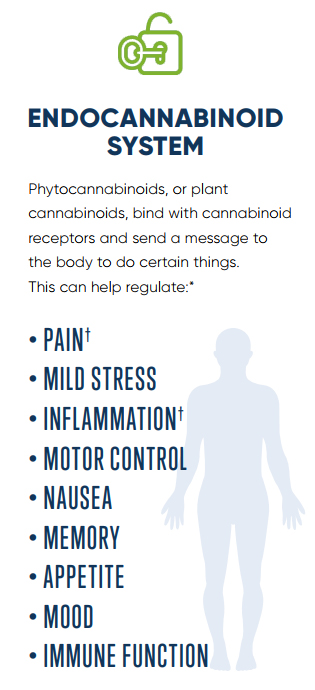
Is CBD Legal?
As a result of the 2018 Farm Bill, industrial hemp is no longer listed as a Controlled Substance by the DEA. This bill legalized hemp cultivation and the sale of products derived from hemp by removing hemp as a Schedule I substance and reclassified it as an “agricultural commodity.”
Understanding the source of the CBD, and the difference between hemp and marijuana, is crucial in understanding the legality of CBD products. Under the legislation, hemp is classified as cannabis that contains no more than 0.3% THC by weight, while marijuana is classified as cannabis that contains more than 0.3% THC. The 2018 Farm Bill made hemp derived CBD products federally legal. Marijuana derived CBD, like marijuana itself, remains illegal on a federal level.
Just because CBD is legal on a federal level doesn’t necessarily make it legal in all states. States continue to have the authority to set forth further regulations, or ones that restrict CBD products altogether. That said, almost all 50 states allow the sale of hemp derived CBD, but before buying any kind of CBD product it’s important to check into any state specific laws that may be in place and understand any conditions they may apply to its sale or use.
Our CBD Isolate products contain CBD from U.S. grown, organic hemp. In addition, they contain 0% THC making them legal in all 50 states.
Hemp Vs. Marijuana
What are the differences?
Hemp and marijuana are terms often used interchangeably to describe any cannabis plant or its derivatives. Here’s an easy way to differentiate between the two.
Hemp < 0.03% THC Marijuana > 0.03% THC
While they have many different chemical properties, according to the federal government, industrial hemp includes the plant Cannabis Sativa L. and any part or derivative with a tetrahydrocannabinol (THC) concentration of no more than 0.3 percent on a dry weight basis. So, 0.3% is the “magic number”. Any Cannabis plant containing more than 0.3% THC is considered mariguana.
All CBD products sold by BioSmart Research are derived from crops grown in the U.S. with THC content less than 0.3% in accordance with Sec. 760 of the 2018 Farm Bill.
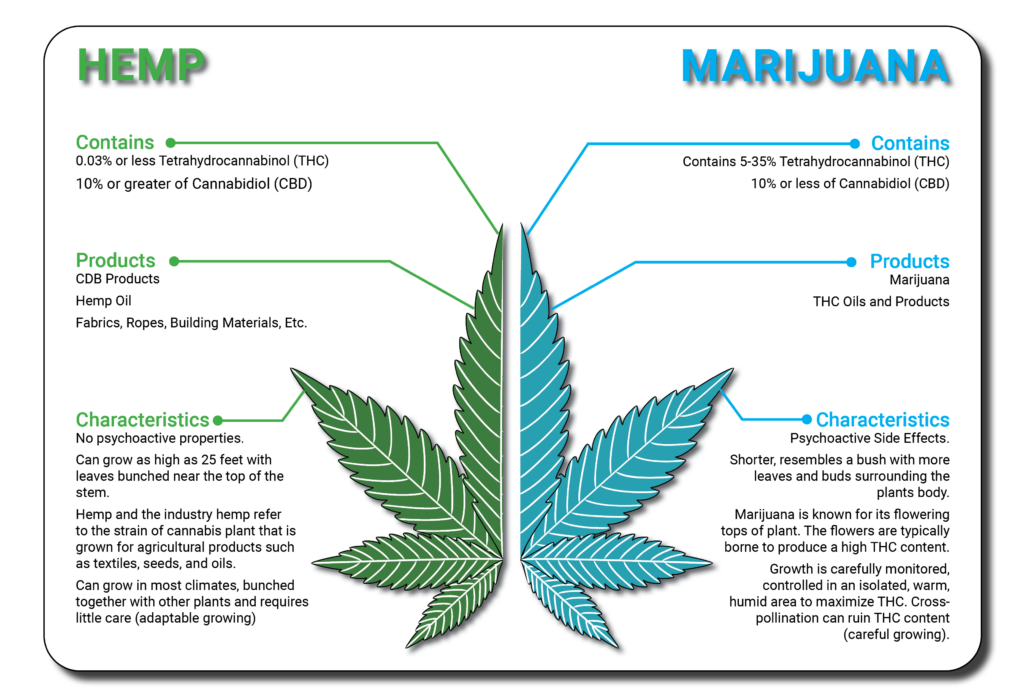
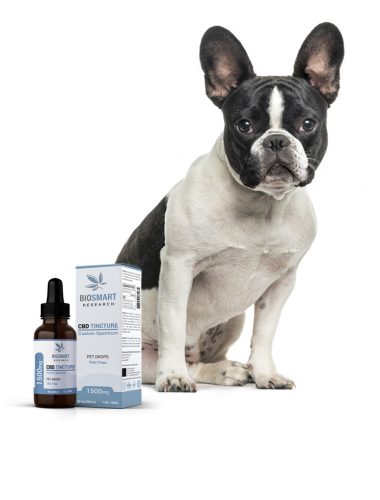
Sit, Stay, Relax
It turns out that Fido and Fluffy also have an Endocannabinoid System just like their human friends. By activating this portion of our pet’s nervous system, CBD may help our pets maintain joint health, regulate digestion, and even calm their nerves as they respond to environmental stressors like the person delivering your mail, a thunderstorm, or even the dreaded holiday fireworks. It has even shown great promise for pain management and joint relief in more acute conditions. Recent studies at Baylor College of Medicine on dogs suffering from osteoarthritis have shown a significant improvement in their mobility and quality of life after just one month of treatment.
Whether your loved one is a puppy or a 13-year-old dog, CBD can be part of supporting a long, healthy, relaxed life.

